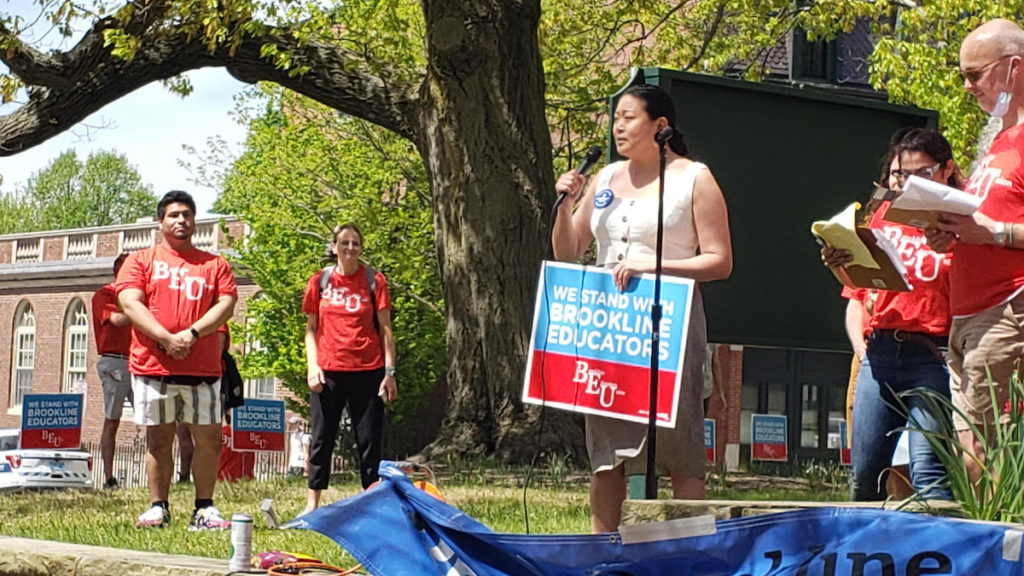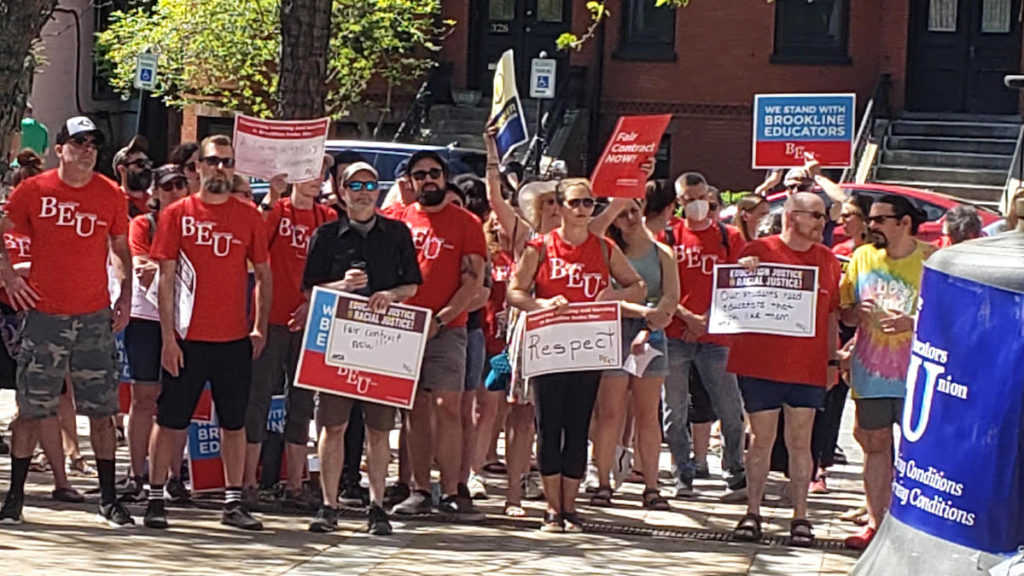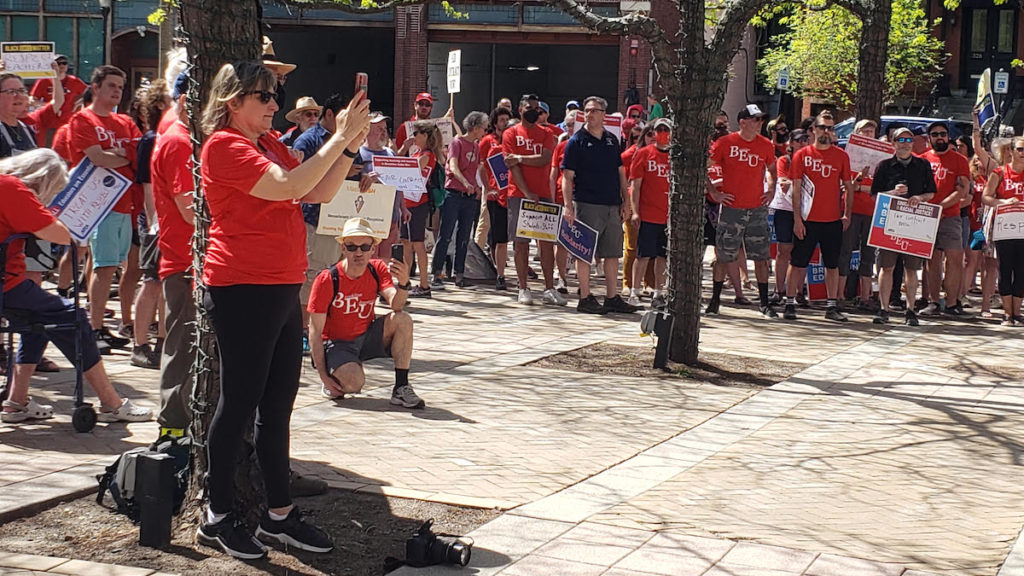A one-day strike on Monday, May 16, settled a three-year-long struggle between the Brookline Educators Union in Massachusetts and the Brookline School Committee. The strike was followed by an 11-hour bargaining session that resulted in hard-earned wins for the Brookline educators.

Over 1,000 workers in the union won their demands for 40 minutes of daily preparation time, raises, and a commitment to attract and retain educators of color. The educators held a rally at Brookline Town Hall the next afternoon to celebrate their victory.
Why strike now?
The previous contract expired almost three years ago. BEU and BSC agreed to a 1.5% stop-gap raise in March 2020 to avoid negotiations during the beginning of the COVID-19 pandemic.
Negotiations for a new contract stalled in 2021 when the School Committee brought forth proposals that would diminish the union’s rights and extend the elementary school day with no increase in pay.
Brookline educators tried various tactics to force BSC to bargain in good faith before voting to strike. In December 2021 they voted to implement a “work-to-rule” policy, meaning they would stop all work outside of official school hours. Teachers also began a door-to-door outreach campaign to make their voices heard within the community.

“We do not feel respected,” Graciela Mohamedi, BEU’s negotiator and community relations chair, told Liberation News after workers had voted to strike. “We do not feel valued by the School Committee, considering it’s been three years and we have no deal.”
‘We don’t want to strike, but we will’
On May 12, BEU members voted to strike the following Monday if the town’s School Committee did not agree to educator demands over the weekend. On the morning of May 14, over 200 teachers and community members rallied in front of Brookline Town Hall to show solidarity with the union’s decision.
“We’ve gotten to the point where we don’t want to strike, but we will,” said Mohamedi. “Because at some point, you need to walk out in order to be heard. We’re walking out so that they’ll finally listen to us, and to show that working conditions matter and must be part of collective bargaining.”
After an eight-hour overnight bargaining session, by the morning of May 15, it was clear that the School Committee was not willing to meet the union’s demands. According to a BEU press release, the demands were already “greatly pared down” from the original list of proposals.
“Brookline educators can no longer tolerate the School Committee’s dismissive attitude toward educators or its willingness to dismantle the quality of our schools,” the press release said.

Educators picketed across Brookline on May 16, and negotiations began again at 5:00 p.m.
After more than 11 hours of negotiations, at 4:00 a.m. on May 17, the BEU announced that the Brookline educators had won at last.
Educator strikes on the rise in Massachusetts
The decision to strike for public school teachers is heavy: Massachusetts law denies public employees the right to strike, and unions of public employees who do strike are forced to pay fines.
After over a decade of no teacher union strikes in Massachusetts, educators are revisiting the tactic despite the costs. A strike in Dedham in 2019 broke the spell and ended in fruitful negotiations. A 2020 strike in Andover followed suit.
In a single-day strike, the BEU strike won a three-year-long struggle. “Strikes disrupt, interrupt, and harm the one thing that we are all called to do: educate children,” Max Page, Vice President of the Massachusetts Teachers Association, told the crowd at the May 14 rally. “But you know what else does that? Forcing teachers to work without a contract for three years!”





